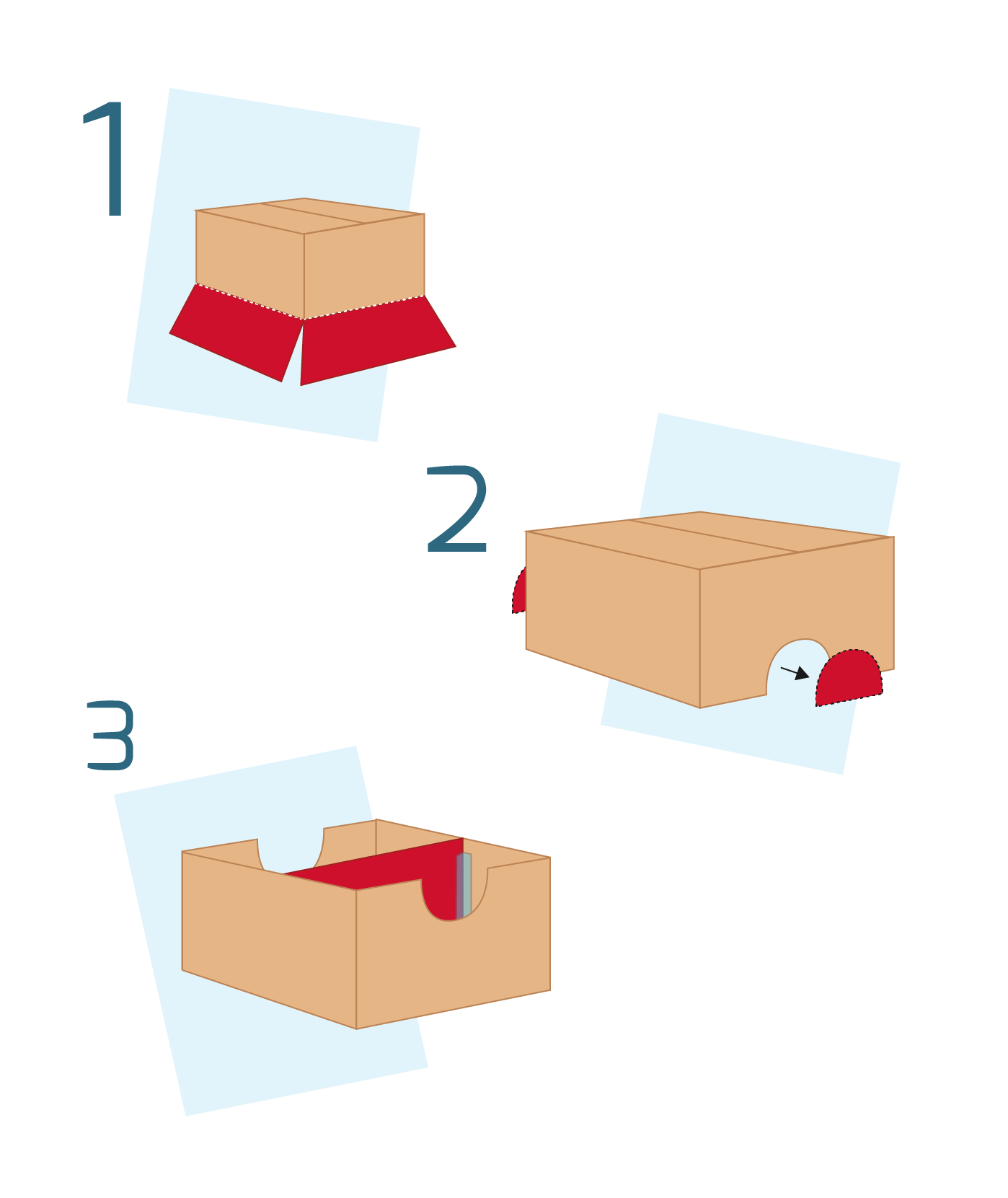Leader Guide
Cave Game
- Blanket, sheet, or drop cloth
- Three small boxes, about the size of a shoe box: see options
- Marker
- Knife and/or scissors
- Masking tape
- Marbles, three per child: see options
- Sixth grade helpers or other volunteers to keep score and retrieve marbles
- Bible or the Superbook Bible App
Cut the four flaps from the bottom of each box.
With marker, draw a “cave opening” in the front and back of each box.
Carefully cut out each opening with the knife/scissors. The opening can be rough like a cave entrance would be.
Turn the boxes upside down. Tape a cut off flap inside each box to make a wall to separate the front and back of the box.
Place the blanket on the floor in the middle of the room.
Place the “caves” in the middle of the blanket.
Mark or tape lines about 6–8 feet from each end of the blanket.

Options:
Add stones, rocks, or tree limbs to the scene and make hills or rises with the blanket as obstacles and interest to the scene.
Use only one or two boxes instead of three to cut down on prep time and materials.
Play as a class and cut an opening on only one end of the box/boxes. A flap inside the box/boxes will not be needed to separate the sides. Play more than one round for the highest group score.
To use fewer marbles, gather the ones that miss the caves and use again.
Sarah, Abraham’s wife, died at the age of 127 years old! She is the only woman in the Bible to have her age listed at the time of her death. People in Bible times were often buried in caves. Abraham did not own land to bury Sarah since he was a stranger and foreigner in the land of Canaan. Abraham used wisdom and went to the Hittite leaders and asked to buy a certain cave at Machpelah. Abraham was honored and respected as a chosen man of God. So, the leaders offered to give not only the cave but the land and trees around it! This was prime property because there were not many trees in this rocky area. Abraham insisted on paying the full price for the land. The cave served as the burial place for Abraham’s family. See Genesis 23:1–20. The Bible tells us that over the years, Abraham and other people in his family were all buried in that cave. See Genesis 49:31; 50:12–13.
In fact, there are many caves in the land of Israel—and some of them have held some exciting discoveries! Around 1947, a young shepherd boy was tending his flock of sheep near the Dead Sea. He tossed some rocks into a cave and heard something shatter, so he went into the cave to see what was in there. He found that he had broken an ancient clay vessel, and there were others in the cave, too. And inside the clay pots was something even more amazing—a priceless collection of Old Testament scrolls that had been hidden away for nearly 2,000 years! That shepherd boy made one of the most important archaeological discoveries of all time! Altogether, over 950 scrolls have been found in caves nearby. The scrolls were written in Hebrew, Aramaic and Greek. Before printing presses were invented, people would carefully hand-copy the Bible, word by word. Can you imagine how long it would take to hand-copy just one book of the Bible?
Several scrolls were written centuries apart by different people, yet they were still worded the same. The Dead Sea Scrolls help show how God’s Word has not changed over the centuries. The Bible is true and accurate!
Today, you will be a shepherd near some caves in Israel. Instead of throwing rocks, you will roll marbles into the caves to score points. Be careful you don't miss a cave, or you will lose points!
Divide the children into two equal teams. Mix older and younger children on each team.
The teams will form lines behind opposite marks on the two ends.
Give three marbles to each player.
One player from each team plays at the same time and tries to roll the three marbles —one at a time into the center cave.
Scoring: Center cave = 5 points. Other caves = 2 points. No cave = minus 1 point.
Play until all players have taken a turn. The team with the most points wins.
Optional: play until one team reaches a certain score, such as 50 points.
Play as many rounds as time permits.
